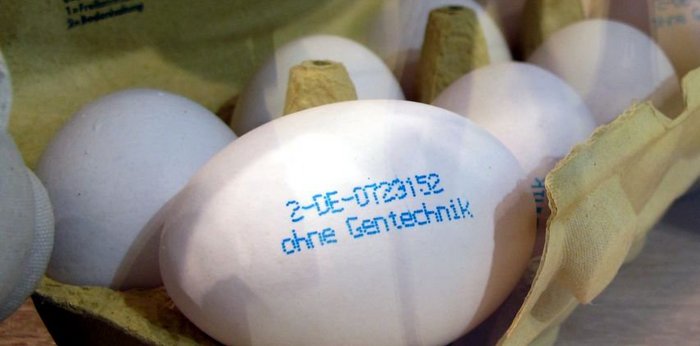News archive

EU Parliament remains critical of genetic engineering
The European Parliament continues to clearly reject genetically modified plants. With a majority of over two-thirds the delegates asked the EU Commission to reject an application for four maize/corn plants and one soy plant that had been repeatedly genetically modified to be approved for human and animal consumption.

Genetically modified linseed: 10,000 kilogrammes of seed may be contaminated
During a routine inspection of the linseed harvest of a Baden-Württemberg organic farmer authorities found the genetically modified linseed FP 967/Triffid as a contaminant. In 2009, Triffid led to numerous recalls throughout the EU, but has not been found in food since then.

New Internet presence
If you have been here before, you will notice it: We have completely redesigned our website. We hope you can now find your way around even better than before. Besides a new look and structure, there are some new and improved functions to discover. And we finally have a real mobile version. Click around a bit!

Producing eggs and poultry meat without soy feed
It is definitely possible to produce eggs and poultry meat without soy feed, and this can even have cost advantages. Dual-purpose chickens – where the unethical killing of day-old male chicks has been eliminated – can also be fed a soy-free diet with no loss of quality.

EU Commission unclear on new detection method, but no doubts as to genetic engineering of Cibus rapeseed
In a letter to VLOG lawyer Dr Georg Buchholz the EU Commission did not take a clear position on the question of whether the new detection method for the SU Canola rapeseed from Cibus satisfies the EU requirements. The Commission expresses no doubt, however, that it is genetically engineered.

Will Poland prohibit genetic engineering in feed?
The Polish government wants to prohibit genetically modified organisms (GMOs) in feed from 1 January 2021. Whether that will happen is not yet certain. The Polish feed industry is up in arms against the prohibition and the EU Commission might also oppose it.

Careful monitoring of seed can ensure that it is “Gentechnik-frei”
In a total of 685 tests on seeds over the course of a year the competent bodies of the federal states examined seven different crop species for traces of genetic engineering. Residues of genetically engineered shares were found in only one maize/corn sample, in trace amounts. Thus, zero tolerance of genetically engineered seed is possible and enforceable.
